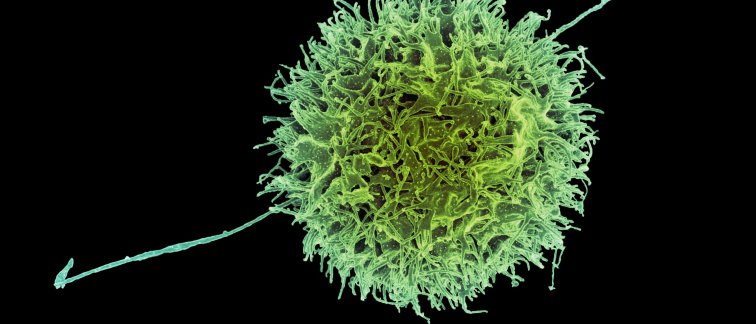This research, published in the eLife journal, is the result of an exploratory research called ‘The gateway for harmful immune cells’, and was made possible by the MS Research Foundation.
Advanced research technique CyTOF
Together with PhD student Sabela Rodríguez-Lorenzo, Elga de Vries has studied the septum and choroid plexus of deceased brain donors with MS, dementia, and controls without neurological disease using a single-cell mass cytometry called CyTOF. This advanced research technique offers you to measure many different cells at the same time. “We found a certain type of NK cells in the septum of people with progressive MS. That is remarkable, because this has not been seen by anyone before.” Elga de Vries explains.
The role of "natural killers" in the brain
Elga continues: "In our work we have shown that NK cells with mainly the molecule CD56 on the surface are present in the brains of people with progressive MS. In addition to their effect on the immune system, these NK cells may also have a protective role in the brain to prevent nerve damage and brain inflammation." A better understanding of the role of these cells in MS and how they enter the brain could lead to new targets for therapies that not only reduce the inflammatory response but also counteract disease progression.
NK cells, friend or foe?
Together with Eva Strijbis, neurologist at MS center of Amsterdam UMC, Elga de Vries received a grant for further research. In this project, they will investigate the precise role of these NK cells in MS and whether to consider them as friend or foe. To accomplish this they will:
- Study properties of NK cells in brains of deceased people with progressive MS;
- Study the presence of NK cells in the blood of people with progressive MS and RRMS and controls and analyze how this is associated with disease progression;
- Study how the different NK cells enter the brain across the blood-brain barriers (the protective barriers of the brain) using culture models.
- Study the interaction between NK cells and other important cells in the brain in “mini brains” grown in the lab.
The position for a PhD Candidate regarding this new study at the MS Center will open up soon.

